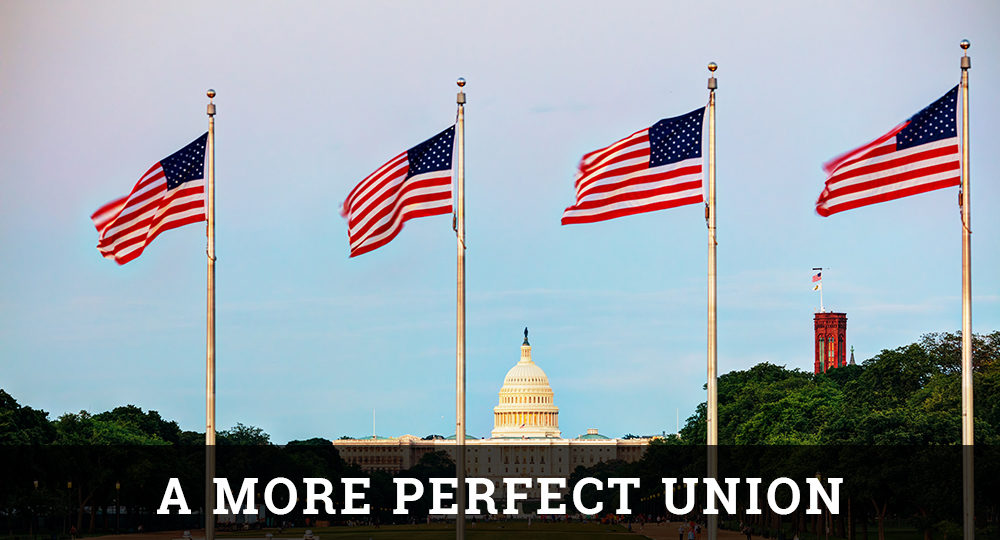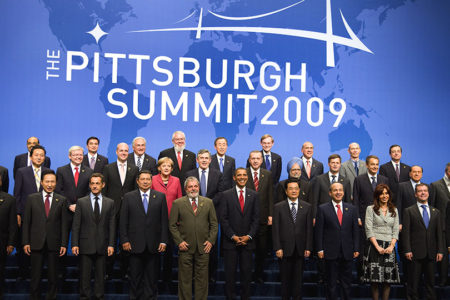A More Perfect Union Jan/Feb 2010
On October 22 in Washington, DC, the Federal Communications Commission (FCC) convened a hearing process that may determine who will rule the Internet. What happens could affect the freedom of Christians to share the gospel over the World Wide Web. Sound ominous? It ought to.
The issue is called “net neutrality,” and you are well-advised to know the basics of this debate. Some politicians, like U.S. Sen. John McCain (R-Ariz.), are so troubled by it that they have advanced legislation to halt the inquiry. Other advocates of an “open Internet” are hailing the FCC proceeding as the only true way to ensure First Amendment freedom will govern what goes out over the Web.
It is a complex subject that promises to occupy much of 2010 as the FCC collects information before deciding what rules it will impose. But don’t let your eyes glaze over at the technical complexity of all this. There are some fundamental points you need to know in order to understand what is really at stake.
In 2007 Comcast, a huge, national telecom company and Internet service provider (ISP), decided to treat some of its Web customers who engaged in large, file-sharing downloads differently from its other Web customers. ISPs claim that, as private businesses, they have a right to block entirely certain customers who slow down the Internet speed for others, or at least to penalize them with higher fees.
The FCC entered an order in 2008 against Comcast, requiring, among other things, that it not discriminate among its customers. That order—which, by the way, came from an FCC chaired by a President George W. Bush appointee—is now on appeal before a federal Court of Appeals in Washington. The present FCC (a mere five commissioners) is now spearheaded by a new chairman, Julius Genachowski, a President Obama appointee, who wants to expand the Commission’s reach into Internet regulation. So, is that a good thing? Well, it depends.
We must decide which entity we trust more to make Internet policy: the federal government or private business. The government, known for overreaching, is dominated by political interests and can be swayed by anti-Christian, special-interest groups. However, private businesses are motivated by the amoral bottom line of profit and can also be swayed by anti-Christian, special-interest groups.
You see the dilemma? Until recently, ISPs (private businesses) have called the shots. But is there any danger there?
Consider the lawsuit filed in England in 2008 by the Christian Institute when the Internet search engine Google refused to run a Christian, pro-life advertisement on its site because of its policy banning ads that contain religious messages about abortion. The case was later settled, but it shows the potential for a private Internet provider to prohibit certain Christian messages from being communicated over its network.
The counter argument, of course, is that ISPs want everybody’s money, Christian or not, and therefore are not likely to discriminate. Perhaps. But look at the huge number of Fortune 500 companies in the United States that, as a result of pressure from pro-homosex-ual groups, have decided to grant same-sex benefits to their employees. When left to decide based merely on profit margin and marketplace factors, private industry chose anti-biblical values over biblical ones. That may indicate what eventually will happen if private ISPs are left substantially unregulated by government.
On the other hand, what may we expect from expanded federal oversight? In its proposed rules, the FCC favorably cited a study from the Knight Commission, a foundation comprised of representatives from the liberal, mainstream media. That report urged Internet networks be required to carry “inclusive” content. Translation: more liberal, secular information must grace the Web.
If this will be the result of increased federal oversight, then we will have yet another liberal monopoly for the left-leaning, mainstream media that has already enjoyed a decades-long reign over television. However, Genachowski has promised privately that whatever the regulations ultimately look like, he wants to maintain the fullest freedom of viewpoint and opinion over the Web, enforced by his so-called nondiscrimination Internet rule. Along with other media watchers, I will be paying close attention.
During the Reformation in Scotland and England, the printing and distribution of Bibles in the common tongue became a major point of conflict. The private ownership and effective use of the printing press became a deciding factor in making the message of salvation available to everyone, thereby spreading the flame of Christian revival.
The Internet is the 21st-century’s version of the printing press, but with an outreach that is both worldwide and instantaneous. The battle over preserving the freedom to spread the gospel electronically has just begun. And it is a struggle we cannot afford to lose.







